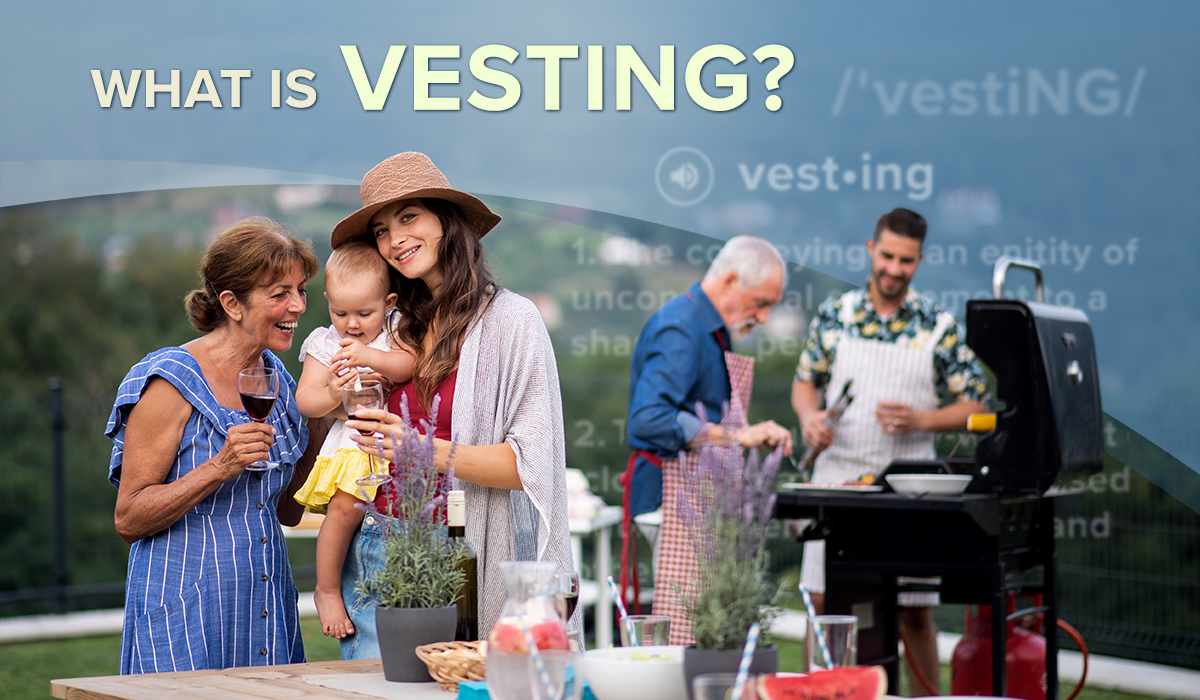Vesting? Title? More things to learn about before you close on your home?
It's hard to wrap your head around all the things you need to learn and truly understand when it comes to buying a home. Look at it this way: your home is probably the largest purchase you'll make. It might be the most valuable asset you own - forever.
To the best of your ability, making sure that you make well-informed decisions during the process is critical. At Point Equity, we recommend our clients learn one piece of the home buying process at a time.
To help with that, we're bringing you short, deep dives of information to save you time and get you informed. Ready for an in-depth look into all things Vesting?
Note: Each state has laws about how individuals can hold title and vest in their property, but this article is based on the laws of California.
To learn more about the entire Escrow process, check out our article The Escrow Closing Process: What Borrowers Need to Know.
WHAT DOES VESTING MEAN
There's a difference between Title and Vesting. The title refers to the actual ownership of the property, and vesting refers to how owners hold title to the property. No matter what form of vesting is in place, it doesn't impact the actual ownership interest (Title.)
What vesting can change is the owner's ability to encumber, sell, or will their interest in a property. In other words, it determines what an owner(s) can do with their property in their lifetime - and after.
Yes, a property's vesting can mean the difference between going through probate or not when the owner dies. You might think that falls into the category of things to think about sometime down the road to Never. But you're required to make this decision to own your home.
The first step is determining who's buying this property?
WHO IS BUYING THE PROPERTY?
When more than one person owns a piece of real estate in California, the title is held either as tenancy in common, joint tenancy, or community property. We'll break down all the options for you, but first, let's talk about buying a property by yourself.
When there is a single owner of a property in California, vesting is still required. The vesting depends on how you answer the following question: Are you now or have you ever been married?
If you've never been married before, you're considered "single" for purposes of vesting. If you've ever been married, whether you're divorced or widowed now, you're legally "unmarried." The distinction between the single and unmarried matters for purposes of title and vesting.
If you're married but planning to own the property yourself, your spouse needs to sign a quitclaim deed because California is a community property state (what's mine is yours and vice versa.) This ensures your spouse relinquishes "spousal interest" and can't come back to claim a partial interest in the property.
If you're not going to own the property by yourself, read on to learn the other vesting options in California.
VESTING WITH CO-OWNERSHIP
When more than one person owns a property, how title is held and vested depends on a few factors. Are they married? Are they sharing ownership with more than one other person? Are they going to have a percentage ownership in the property based on the percentage they invested?
In California, the different vesting options available for co-ownership of property are:
Community Property: This type of vesting is applicable when a property is owned equally by married persons. Property owned by a married person is presumed community property unless otherwise stated. (for instance, property that was acquired by a gift, inheritance, or by agreement) Each owner can dispose of their half of the property by will.
Community Property with Right of Survivorship: This type of vesting is also applicable when a property is owned equally by a married couple. The vesting is the same as community property described above but adds the right of survivorship. This means that when one spouse dies, their half interest transfers to the surviving spouse. Important to note that this means the property will not go through probate at the time of the spouse's death.
Joint Tenancy: This type of vesting applies when a property is owned by more than one person who may or may not be married. Each owner has an equal interest in the property (depending upon the number of owners.) It also provides the right of survivorship in the surviving joint tenant(s), as long as title was acquired at the same time, by the same conveyance, and the document must expressly declare the intention to create a joint tenancy estate.
Tenancy in Common: This type of vesting is for property owned by two or more persons with unequal ownership (referred to as fractional interests.) Each owner may sell, lease or will their share of the property.
Transfer on Death: This is new in California. The law went into effect in January 2016 (Assembly Bill 139). It's meant to be a probate-free alternative for property vested as sole owners. It allows the property to be passed directly to a designated party upon the owner's death. It would be best to discuss the conditions and concerns about this form of vesting with a tax advisor, financial advisor, or estate planning attorney.
OTHER VESTING OPTIONS IN CALIFORNIA
If you’re in a domestic partnerships or same-sex marriage, these same ownership vesting options apply in California. Note that domestic partners must register with the Secretary of State.
Other ways a property can be vested in California are a corporation, a partnership, a trustee of a trust, or a limited liability company. Individual homeowners aren't likely to choose these forms of vesting except for as a trustee in a trust.
It's important to remember that the way a property is vested holds legal and tax implications for property owners, and seeking professional advice before making your decision is encouraged. And while they're not a fun thing to think about when you're excited about buying a home - probate and right of survivorship are the two most important takeaways from this article.
Probate is the legal process of distributing a person's property when they die. This lengthy and expensive process takes place in probate court. A vesting option that eliminates the requirement of the probate process allows the property to pass directly to the heirs.
Right of Survivorship is included in some vesting options. However, when multiple people own a property together, each persons' interest will be' probated' separately when that owner dies. If the vesting includes a right of survivorship, then the deceased owner's interest passes to the other co-owners, avoiding probate entirely.
We hope you've learned what vesting means and appreciate why it's important after reading this; however, we can't emphasize enough the value of individually seeking professional advice before you make your final decision.








